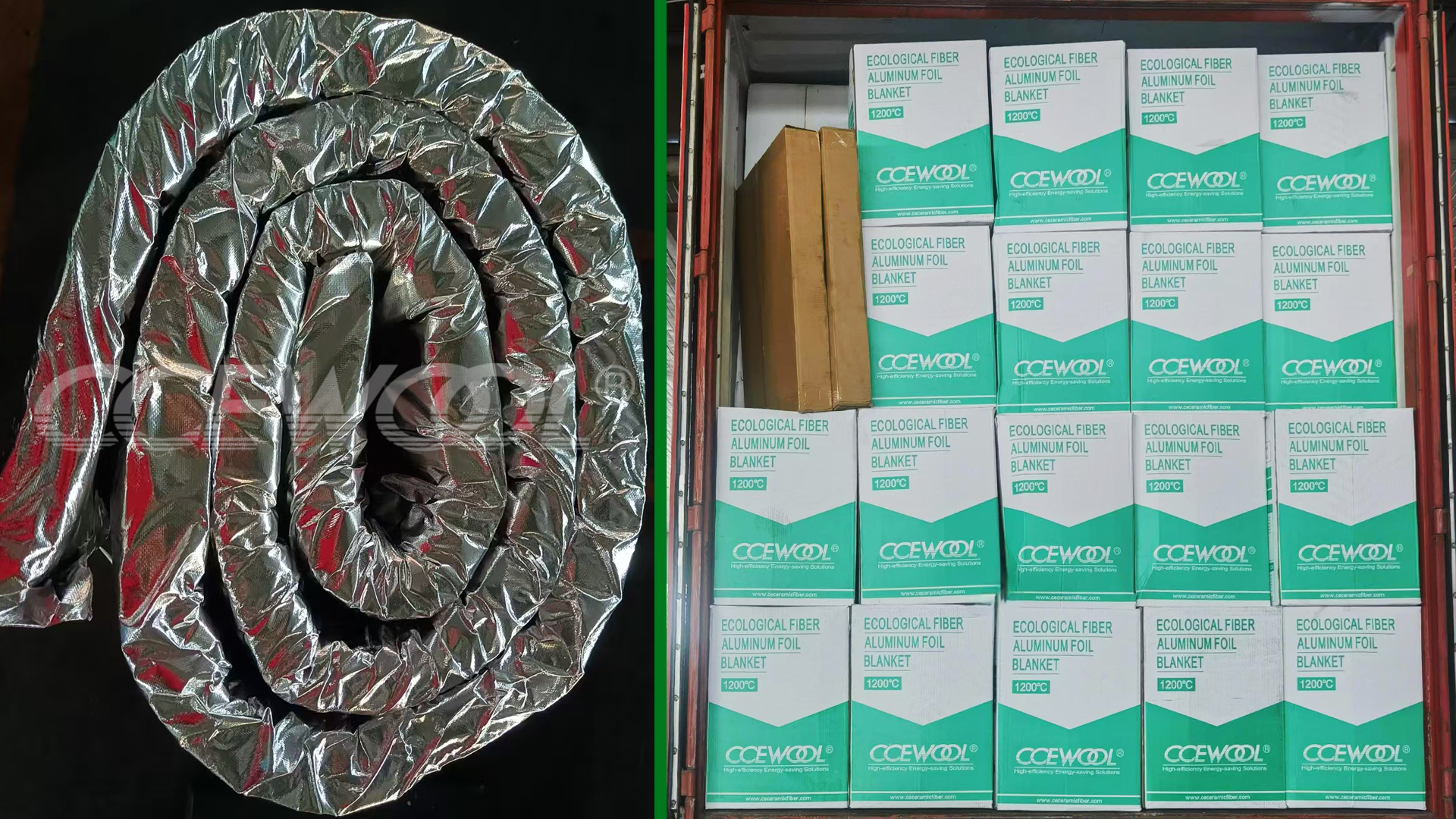Bio Soluble Fiber Aluminum Foil Blanket – CCEWOOL®
- 26 May, 2025
- Insight

As modern high-temperature industries increasingly emphasize environmental sustainability and occupational safety, more customers are choosing insulation materials not only for their thermal performance but also for their health and eco-friendly properties. CCEWOOL® bio soluble fiber aluminum foil blanket perfectly addresses these needs with its outstanding insulation capabilities, bio-soluble fiber composition, and reinforced aluminum foil surface, making it an ideal choice across multiple industries.
Key Advantages: A Safer Insulation Material
CCEWOOL® bio soluble fiber aluminum foil blanket is made from low bio-persistent AES (alkaline earth silicate) fiber, with key components including SiO₂, MgO, and CaO. These fibers dissolve quickly in body fluids and are biodegradable, posing no long-term health risk to users. The product complies with GHS global chemical classification standards and requires no special protective measures during handling.
The surface is laminated with high-strength aluminum foil, which not only improves moisture resistance and mechanical strength but also provides excellent infrared reflectivity. This enhances the overall thermal insulation performance and makes the blanket suitable for:
High-temperature pipe insulation
Outer insulation of industrial furnaces
Protective layers for high-temperature equipment
Combined moisture and heat barrier insulation layers
Korean Customer
Cooperation Years: 2 years
Ordered Product: CCEWOOL® bio soluble fiber aluminum foil blanket
Product Size: 50x610x3600mm
For an insulation upgrade project in a heat treatment facility, the Korean customer selected CCEWOOL® bio soluble fiber aluminum foil blanket. Their feedback:
"This product is eco-friendly and non-irritating, making it very comfortable to install. The aluminum foil layer prevents damage during transport and installation, and the insulation performance is excellent. We've now added CCEWOOL® to our list of long-term suppliers.”



